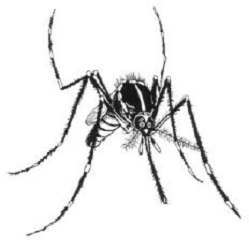Zika Fever
Over the past few days, the news has been filled with stories of the rapid spread of the mosquito borne Zika Virus throughout the Western Hemisphere. The Zika Fever, which is caused by the virus, was first detected in the Americas last year, but at the time it was extremely rare. During the past few months, however, the spread of the virus has exploded.
The WHO has declared the virus to be a major threat and forecasts approximately 4 million cases over the next year. The WHO has already begun to work on preventative measures to help control the spread, and clinical trails working towards a vaccine are expected to start as soon as possible.
Most people who are infected with the virus have no visible symptoms whatsoever. While some cases can cause a rash, joint pain, and redness of the eyes, the majority of cases go completely undetected. The virus moves quickly through the infected person’s system and that person is usually immune after that exposure.
The current fear, however, is associated with a potential link between the Zika Virus and microcephaly. Microcephaly is a disorder that results potential intellectual and developmental impairment in newborns. Medical experts fear that the pregnant women infected with the virus pass it through amniotic fluid and this damages fetal brain development. While this link has not been fully confirmed, Brazil has seen a massive spike in cases of microcephaly among newborns as cases of the Zika virus have increased.
With no vaccine for the virus, most preventative measures involve control of mosquito populations in infected areas. The virus is spread by the Aedes species of mosquito. Because the Aedes is a daytime mosquito, and therefore bed nets cannot stop the spread of the virus.
Areas that are both heavily populated and more tropical, such as Brazil, have seen thousands of new cases over the past few weeks as the infection spreads via mosquitoes. This species of mosquitoes can potentially be found in every country in the Western Hemisphere excluding Canada and Chile.
While the United States currently only has 31 reported cases, that number could potentially rise rapidly as the summer months lead to an increase in mosquito populations. The best way to protect yourself from the virus is to avoid traveling to any infected areas. If travel is absolutely necessary, it has been recommended that travelers avoid mosquito bites as much as possible.
Make sure to use bug repellent and cover up as much exposed skin as possible. Mosquito yard treatment will also help to control populations once summer arrives again and mosquitoes begin to spread.
The virus is nothing to panic over, but it is important to protect yourself and your family. If you are in need of mosquito control around your home, call us today at Canton Termite and Pest Control at 770-479-1598! We have decades of experience with mosquitoes, and we will do our part to keep your home safe!
By: Tim
